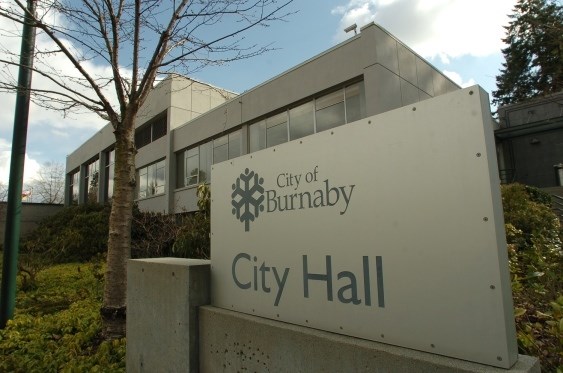More than a dozen Lower Mainland municipalities, including Burnaby, have come under fire following the release of a report highlighting a disparity in wage increases between local governments and the B.C. Liberals.
The report – compiled by Ernst & Young, commissioned by the provincial government and leaked by the Canadian Taxpayers Federation – notes that union wages for city workers across B.C. went up 38 per cent between 2001 and 2012, compared to the B.C. government’s 19 per cent raise for public service employees. It also cites municipal data from 2011 highlighting the salaries of local city managers that outpace the pay of provincial deputy ministers.
At the time, Burnaby city manager Bob Moncur’s pay was on par with the average deputy minister’s salary of about $230,000. In the years since, his wage cleared $250,000, making him the highest paid member at Burnaby city hall.
Moncur was one of 19 Burnaby employees to make more than $150,000 in 2013. But Coun. Dan Johnston, who chairs the city’s finance and civic development committee, said the high wages for executive employees are justified.
“If there’s an increase, it’s usually based on merit,” he said, noting pay raises comes with additional responsibility.
“The other thing is, some of the higher wages are firefighters, and for the most part, they’re arbitrated salaries, so we don’t have a lot of say. They come in with a request, the mediator makes a decision and that’s what we pay them.”
However, Burnaby First mayoral candidate Daren Hancott said he thinks it’s time municipal governments take a serious look at the level of increases issued to city workers.
“Obviously, we want workers to have competitive wages and be able to afford their houses and vehicles and to live in the city,” he said, “(but) I think sometimes the increases may be out of line with the private sector and not every year should people expect increases, depending on the economy.”
Part of the BFC’s platform is a pledge to not increase taxes for three years in the city. Supporters of the coalition have previously accused Burnaby’s current council of unnecessarily raising property taxes in recent years, and Jordan Bateman – the B.C. director of the Canadian Taxpayers Federation – has publicly suggested the report confirms the CTF’s beliefs that citizens are overtaxed.
“If we don’t need the money and service levels aren’t increasing, all we’re doing is increasing taxes and increasing wages,” said Hancott. “Our goal is to hold taxes, look at waste, plan for the future and do more with less.”
Johnston, however, noted that property tax is the only levy the city can use – unlike the B.C. government – and that property taxes go toward every expenditure of the city, not just wages.
“The province is going to criticize property tax because it’s not a tax that they collect,” he said. “They don’t give municipalities a lot of other options on how they can collect tax – we don’t have the ability to collect other types of taxes such as sales taxes or different levies.
“Our methodology of raising funds is property tax, so I don’t think that’s a fair comparison at all.”
Ultimately, Johnston echoed sentiments from Metro Vancouver – the political body that encompasses 24 municipalities – which released a statement criticizing the accuracy of the study.
“I don’t have a lot of faith in it,” said Johnston. “I don’t think it’s really comparable from municipality to municipality because the amounts paid by different municipalities are all over the map.”
But Hancott said the BFC, if elected this November, will look further into how funds are distributed at city hall in an effort to save money for Burnaby taxpayers.
“We’ve committed to do core reviews of all departments, all positions at Burnaby, and quite frankly, I’m sure we can find savings.”



